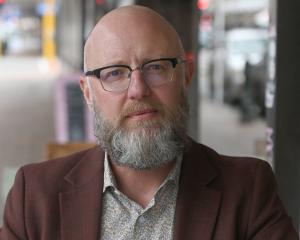
The comments come after Treasury released a swathe of correspondence this week about the proposed medical school.
Most of the commentary expresses concern about the costs, and the likelihood of a government bailout should the new medical school not perform to standard.
Integrity Institute director Dr Bryce Edwards said yesterday Treasury had been "remarkably consistent" in its advice the Waikato medical school was a "very bad idea".
"The more they looked at the proposal, the more they seemed to harden against giving it the green light."
Dr Edwards said this case represented a clear breakdown in the relationship between expert advice and political decision-making.
"The Treasury documents reveal a government that had already decided its course of action and was simply seeking bureaucratic validation rather than genuine policy analysis.
"Clearly, the government was determined to stay aligned with the University of Waikato regardless of what evidence came up, while Treasury kept reviewing the evidence and siding with the universities of Otago and Auckland on their superior proposal."
Treasury also suggested the proposed Waikato model of delivering rural GPs should have been tested at Otago and Auckland Universities, as they already had the infrastructure in place.
A Treasury adviser queried: "Wouldn’t the best option be to first undertake a smaller trial of the proposed intervention first within the current infrastructure, evaluate if it is successful and reassess in a few years if additional capital investment is required?
"Otherwise, we are taking on board a fair bit of risk investing in a new medical school that will be implementing an untested programme."
Another adviser cast the entire cost of the project in doubt.
"This is a huge investment for the Crown working with constrained and finite funding available — this is a significant amount of money to seek through Budget allowances," they said.
"The alternative options are significantly much cheaper to the Crown," the adviser said.
Dr Edwards said the process was structured to deliver a predetermined outcome, agencies being relegated to facilitating rather than evaluating the plan.
"So this reveals a government unwilling to engage with substantive criticism of its preferred policy, even when that criticism came from its own fiscal watchdog.
"This represents a concerning erosion of the traditional role of expert advice in New Zealand’s policy-making process."
Political commentator and lobbyist Matthew Hooton said the Waikato project had "always had the stench of the broken-down morgue, so there is nothing surprising about Treasury’s advice".
"Obviously, the best strategy from an education or health perspective was to expand Auckland and Otago’s existing world-class medical schools, and maybe think about bonding graduates for a few years to keep them in New Zealand.
"Waikato was never about health or education — it’s about politics and the construction industry, which admittedly does need a boost right now."
Further correspondence obtained by the Otago Daily Times showed Otago, Auckland and Waikato Universities went straight to Finance Minister Nicola Willis to lobby for their cause.
Head of Auckland medical school Prof Warwick Bagg and Otago University pro-vice-chancellor Prof Megan Gibbons wrote a joint letter to Ms Willis expressing concern about the lack of communication, saying "our experience delivering medical training programmes has not been deployed or largely ignored".
Waikato University vice-chancellor Prof Neil Quigley’s letter said the present providers of medical education in New Zealand did not "provide the workforce outcomes the country needed" and Waikato would deliver a better outcome.
The government has agreed to fund the new medical centre in July to the tune of $82.85million, Waikato University contributing the other $150m.
The "quarterly targets" released yesterday showed constructing the new medical school was now a high priority for the government.
It is expected Waikato University’s first cohort of 120 medical students will be ready in 2028.
"The coming years will reveal whether that political gamble delivers the hoped-for cure to rural doctor shortages, or validates the Treasury’s warnings in hindsight," Dr Edwards said.
Prof Gibbons said "as has been indicated many times previously, the university shares the concerns that Treasury is raising".
"We continue to work with government and other universities on the way forward.
"At the University of Otago, we have trained high-quality medical graduates for 150 years and will continue to do so."











